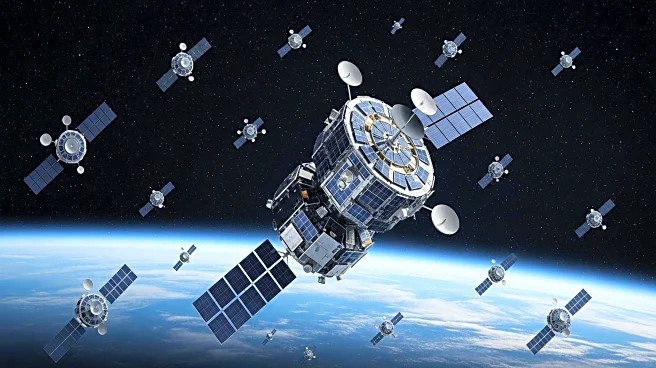What's Happening?
Amazon's Project Kuiper is set to launch 27 broadband satellites aboard a United Launch Alliance (ULA) Atlas V rocket from Cape Canaveral Space Force Station. The launch is part of Amazon's plan to establish a megaconstellation of approximately 3,200 satellites in low Earth orbit (LEO) to provide global internet coverage. The Atlas V rocket, equipped with five solid rocket boosters, will deploy the satellites at an altitude of 280 miles. Following deployment, the Project Kuiper team will manage the satellites from their mission operations center in Redmond, Washington, raising them to their assigned orbit.
Why It's Important?
Project Kuiper aims to provide high-speed internet access to underserved regions worldwide, enhancing global connectivity. The initiative represents a significant investment in satellite technology and infrastructure, with Amazon planning over 80 launches using various rockets. The successful deployment of these satellites is crucial for Amazon's long-term goal of competing with other satellite internet providers, such as SpaceX's Starlink. The project also highlights the growing role of private companies in space exploration and telecommunications.
What's Next?
Amazon plans to continue launching satellites to build its Project Kuiper constellation, with future launches scheduled using different rocket platforms. The company will focus on ensuring the operational readiness and health of the satellites, as well as expanding its internet service coverage. As the constellation grows, Amazon will face challenges related to satellite management, orbital congestion, and regulatory compliance. The success of Project Kuiper could influence the development of similar initiatives by other companies.










